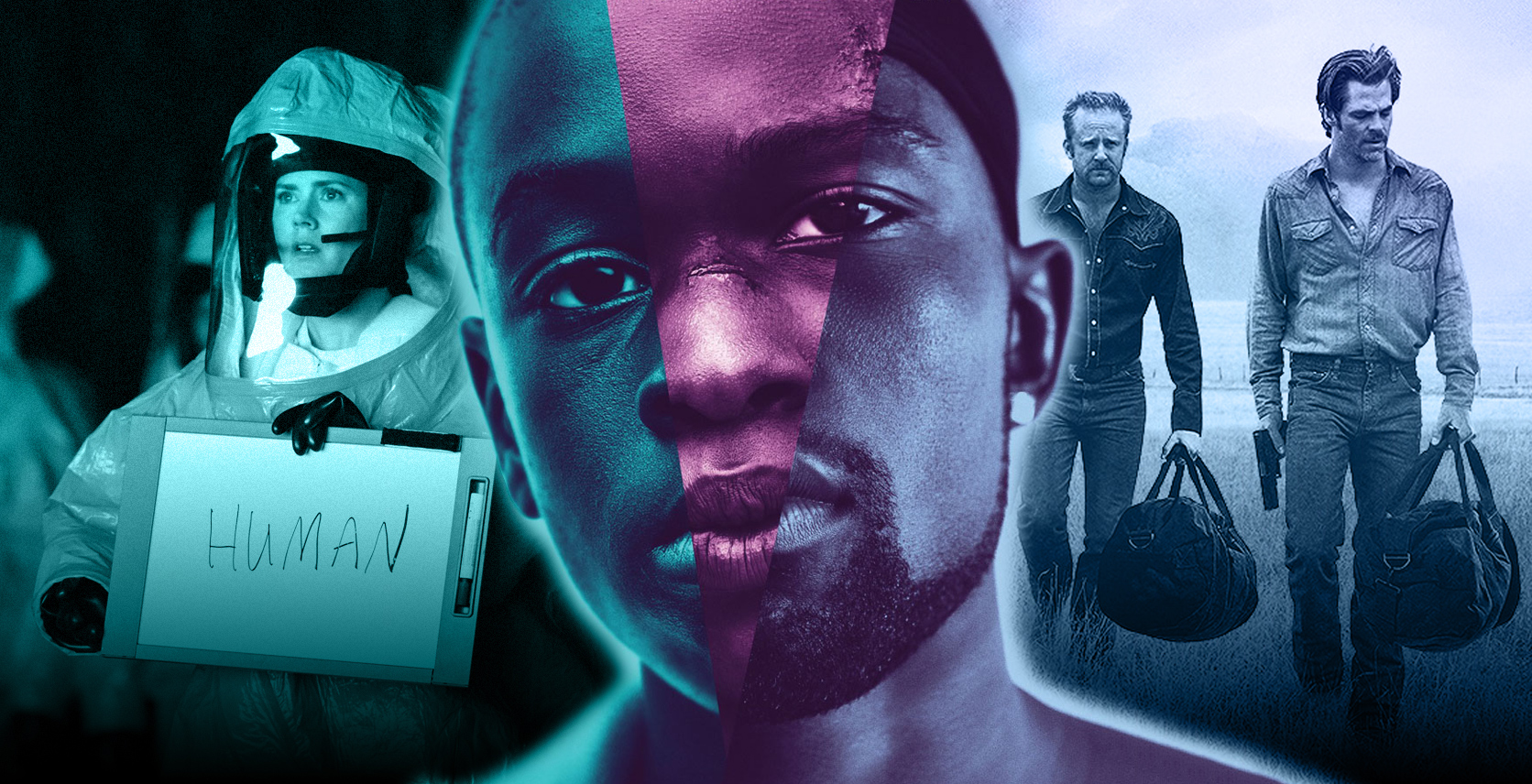These Were the Very Best Movies From a Very Garbage Year
2016 is nearly over, thank God, which means culture writers everywhere are busy trying to distill the year’s movies, music, and geopolitical tragedies into some coherent theory of Who We Are Now. While I’m glad someone’s trying to figure that one out, I’ve personally never felt less sure of who “we” “are” (“now”) — so instead of theory, here are three of the movies I most loved in 2016, plus a handful of related runners-up, which might share a common theme.
Hell or High Water
When I saw Hell or High Water in September, I immediately liked it but also dismissed it as No Country for Old Men-lite. Which, in retrospect, was unfair. For one thing, lightning-bolt-from-God masterpieces like No Country don’t come around every year. More importantly, Hell or High Water’s mixture of Texas violence and moral philosophy is keyed differently than No Country’s. Three months later, my lasting impression of the film isn’t that it’s trying to imitate No Country’s beautiful nihilism; it’s trying to challenge it.
It does this by being the rare movie about cops and criminals that is able to empathize with both sides of the law. The film’s main characters are bank-robbing brothers (Chris Pine and Ben Foster) — but they aren’t strictly antiheroes. Equally well drawn are the Texas Rangers (Jeff Bridges and Gil Birmingham) chasing them — but they aren’t strictly heroes. Even the movie’s often-stereotypical supporting roles — waitresses, hookers, bankers — feel distinct, lived-in, morally complicated. When the film’s last act turns violent, as it inevitably does, what makes the action gripping is your inability to root simplistically for either side.
See also: American Honey, which films middle-of-nowhere America with similar empathy—and somehow makes running away from home with Shia LaBeouf seem like an appealing thing to do.
Arrival
New year, new genre, same result: Last year, Canadian director Denis Villeneuve helmed the drug-war thriller Sicario, the year’s best-filmed, most unsettling suspense movie. This year he was behind Arrival, the year’s best-filmed, most thought-provoking science fiction movie. The craft and scale that Villeneuve brings to these genre pictures — from Sicario’s immaculately edited shootout on the streets of Juárez to the eerie, towering alien spaceships of Arrival — is incredible, and rare. Most directors this good eventually get drafted to work on more self-consciously “prestigious” films, so let’s be thankful that, for now at least, Villeneuve would rather make Amy Adams talk to seven-tentacled space aliens than direct a weepy WWII drama.
The main plot of Arrival — aliens come to Earth for unknown purposes, and a linguist (Adams) is drafted to help figure out how to communicate with them before hotter government heads end up killing us all — is complicated by a late revelation that I wasn’t 100 percent sold on. Other writers I admire have found the twist profoundly moving. Either way, what lingers about Arrival is, again, the appeal to empathy. The notion that one can be cautious, professional, and pragmatic yet still treat the unknown as a chance to know more. That seemed an important message to hear in 2016.
See also: The Lobster, which also uses a high-concept, vaguely sci-fi premise to critique human behavior in weird and darkly funny ways.
Moonlight
Is it possible for a movie that’s received near-universal acclaim to be underpraised? I’d argue that’s the case with Moonlight, which many critics seem to love as an act of charity. The film’s subject matter, in 2016 of all years, is ripe for a certain kind of lazy moral salute: “I loved this movie about a poor, black, gay kid growing up with a crack-addict mom and a drug-dealer father figure, because I care about the plight of inner-city youth and other Important Things.” By reducing Moonlight to an act of social commentary—a commercial shaming us into being more mindful of the toughness of certain urban lives — these rave reviews suggest that Moonlight is great because it’s good for your politics. Quality is secondary.
But Moonlight’s quality deserves to be the headline here. On every level — script, imagery, acting, music — this is one of the most astonishingly well-made movies I’ve seen in years. It’s also a pleasure to watch. Plenty of misfortunes befall the film’s main character, Chiron, sure, but Moonlight never crosses the line into melodrama. It moves quickly, is funny when you least expect it, and makes no easy judgments on any of its characters. In other words, it’s probably a lot like what your life has felt like, whether or not you’re poor, black, or gay.
I don’t say that to erase what is distinctly black and gay about the film. I just mean that watching a movie like Moonlight — temporarily slipping into a life that might be quite different from your own — is so often construed as a civic duty instead of a completely normal way to enjoy oneself. But why shouldn’t this kind of intentional empathy be enjoyable? Do the Chirons of the world not experience joy? Moonlight knows better. After seeing it, you might too.
See also: Moonlight has no peers in 2016 that I’ve seen, but in terms of cumulative emotional impact, it reminded me most of Richard Linklater’s Boyhood (2014) — only where that movie was long and messy, Moonlight is taut and precise.










